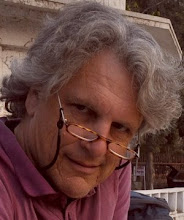Are there any offenses too big to forgive?
To what extent is responsibility for one’s offenses a condition of forgiveness?
I have been wondering aloud and praying about a tragedy being uncovered this week back home – evidence of wide spread sexual abuse in an upper crust Toronto boys school some 30 years ago. An acknowledgement of guilt on four counts and a plea bargain to drop other rumoured charges and serve house arrest. One victim committed suicide.
I am no more responsible for this than for the widespread human rights abuses in Afghanistan – by Taliban fundamentalists, coalition occupation forces, warlord powerbrokers, drug cartels and corrupt government officials. But this outrage at home has raised my ire at the powerful here – their greed and lack of respect. Sexual abuse of minors is analogously angrymaking – the exploitation of the powerless by the powerful.
And hence the question “is there hope”? For the oppressed and for the oppressive world. Is there a possible truth and reconciliation process – a way to acknowledge responsibility and ask for genuine forgiveness? As a Christian I believe my accountability is to both God and man. But it is the latter with whom we face the greater challenge.
Mankind may indeed be burdened with original sin, but it is our own acts that we need to examine - our own impact on the world that we need to critique. And we seem to live in a time of gross inability to admit error, to acknowledge mistakes, and to take responsibility for oppressive outcomes.
I’d like to start by asking the offenders to reflect on their victims. For both the sexual abusers and the powerful in the Afghanistan political arena to take some time to examine the consequences of their greed. To put aside for a moment their grievances – or ideologies. To make settling the score or being right a lower priority than being humane and kind and respectful of their fellow humans.
We have blood on our hands.
It is time to own it.
 The wives prime for a pregnancy annoucement at the gym.
The wives prime for a pregnancy annoucement at the gym. "Have you not loved me all these years - now you want me to have a bady!" Wellllll on three conditions
"Have you not loved me all these years - now you want me to have a bady!" Wellllll on three conditions Babies interrupt negotiations for "just a few more billion dollars" between senior management of the Afghan Construction Company and American Reconstruction Company President Ms Vicky Jones
Babies interrupt negotiations for "just a few more billion dollars" between senior management of the Afghan Construction Company and American Reconstruction Company President Ms Vicky Jones





